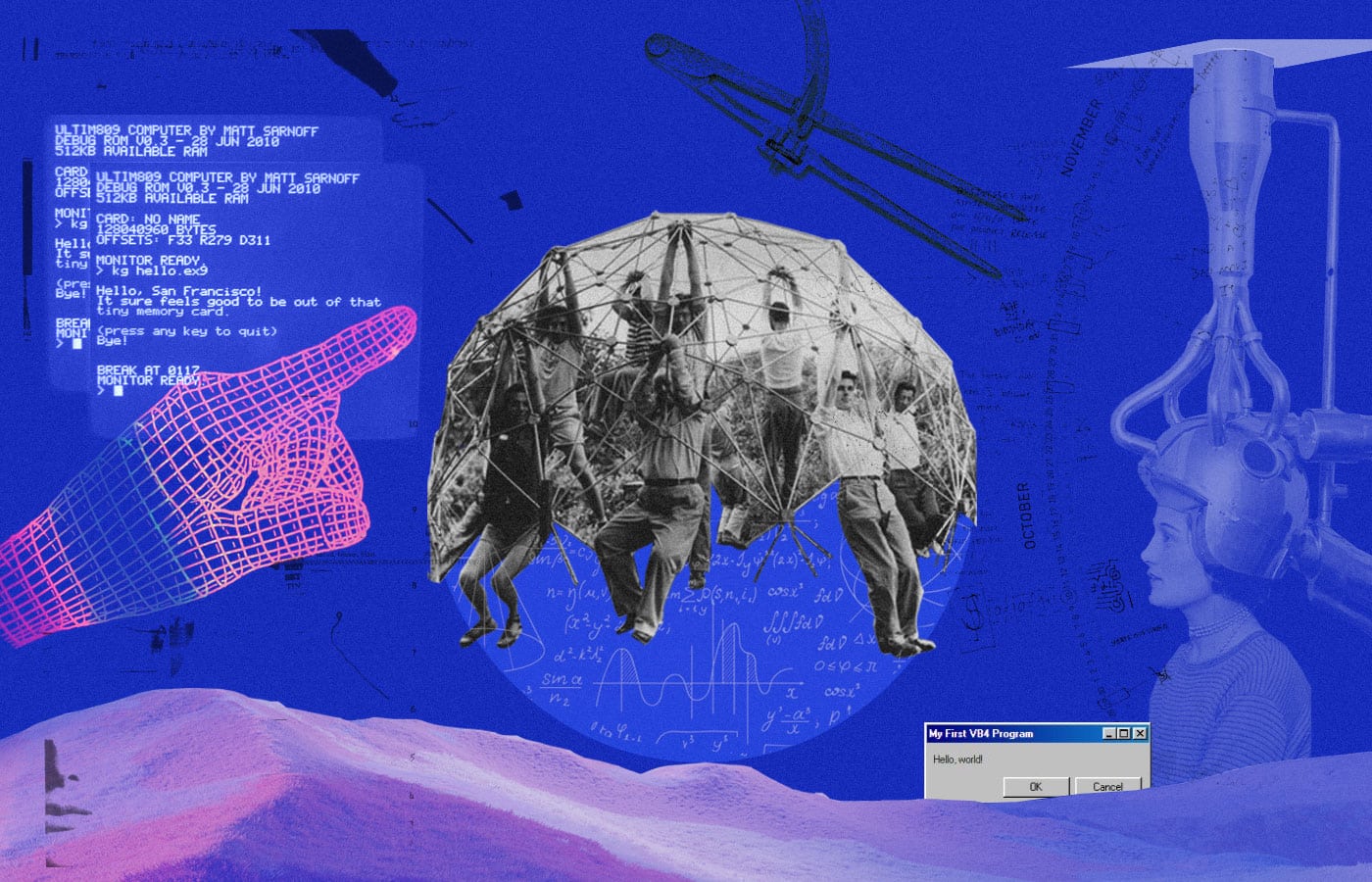
Action Research in the Making: Fab Lab Barcelona’s Academic Contributions
Fab Labs are increasingly becoming critical actors in research, not just as spaces for prototyping or education, but as infrastructures for applied, action-oriented research that responds directly to local needs while contributing to global knowledge production.
Action research is at the heart of this shift, a participatory and iterative methodology that bridges the gap between theory and practice by involving stakeholders directly in the research process. Rather than observing from a distance, action research calls for co-creation, where communities and researchers work together to diagnose challenges, prototype solutions, and reflect collectively.
By combining the open ethos of maker culture with the rigour of action research, Fab Labs are helping to define a new paradigm of situated, embodied, and participatory research, one that challenges the hegemony of academic institutions and empowers citizens as co-researchers. This shift supports the idea of Fab Labs as civic infrastructures for innovation and inquiry, reimagining how research is done, who participates, and who benefits.
At Fab Lab Barcelona, we structure this exploration through three vertical impact pillars and one horizontal foundation. Future Learning explores hands-on educational models, situated training methodologies, and distributed learning programs. Sense Making focuses on collective awareness platforms and open tools for environmental monitoring. Distributed Design develops decentralised manufacturing models and collaborative design methods. These are all grounded in our Productive Cities approach, which cultivates community-driven innovation spaces and open knowledge ecosystems.
Over the last decade, our team has contributed to a diverse body of academic work that explores how design, technology, and community can shape more inclusive and regenerative futures. This post marks the first time we’re curating our academic publications, papers, posters, proceedings, and collaborative reports, into a single, accessible archive. Each citation below follows academic convention to support further exploration, reuse, and recognition.
Future Learning
Hands-On Educational Models, Situated Training Methodologies and Distributed Learning Programs.
From primary schools to master programmes, from biomaterials to soft robotics, these publications explore how learning can be reimagined as a participatory, hands-on, and future-facing experience.
- Nadal, O., & Domínguez, X. (2023). Integration of the maker movement in the classroom: a practical experience in the first year of an educational project. UTE Teaching & Technology (Universitas Tarraconensis), (1), e3566. https://doi.org/10.17345/ute.2023.3566
- Burdiles Araneda, I. M., Dominguez, X., Real, M., Fuentemilla, S., & Pistofidou, A. (2022). Remix The School Project: Socio-Emotional Learning through Biomaterial making: A Methodology for Self-Awareness through Bio-material fabrication for teachers and children. 6th FabLearn Europe/MakeEd Conference 2022, 1–5. https://doi.org/10.1145/3535227.3535242
- Gerodimou, M.D., Chamorro-Martin, E., & Fuentemilla, S. (2022). Developing maker-centred learning programs to promote critical thinking about technology and design for emergent futures. Fab 17 Research Papers Stream, 145–159. https://doi.org/10.5281/zenodo.7432107
- Solanas, O., Usart, M., Valls, C., & Domínguez, X. (2022). Metodología STEAM-Maker en primaria: un estudio mixto. In XXV Congreso Internacional Edutec 2022. https://edutec2022.uib.es/libro-de-actas/
- Cabrera Galinzed, A., & Pistofidou, A. (2022). From Textiles to Soft Robotics and the Emergent Approaches in STEAM and Textile Labs. The Future of Education Conference Proceedings. https://conference.pixel-online.net/FOE/files/foe/ed0012/FP/7865-ADU5593-FP-FOE12.pdf
- Chamorro-Martin, E., & Chadha, K. (2021). Hyper-connected hybrid educational models for distributed learning through prototyping. Jornadas sobre Innovación Docente en Arquitectura. https://upcommons.upc.edu/handle/2117/356107
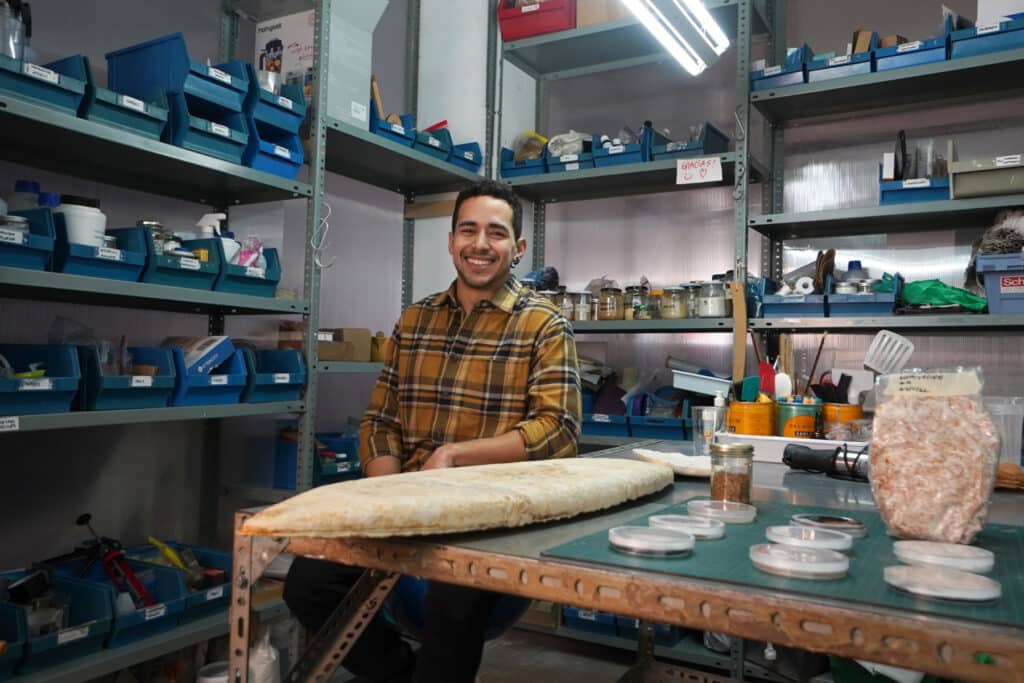
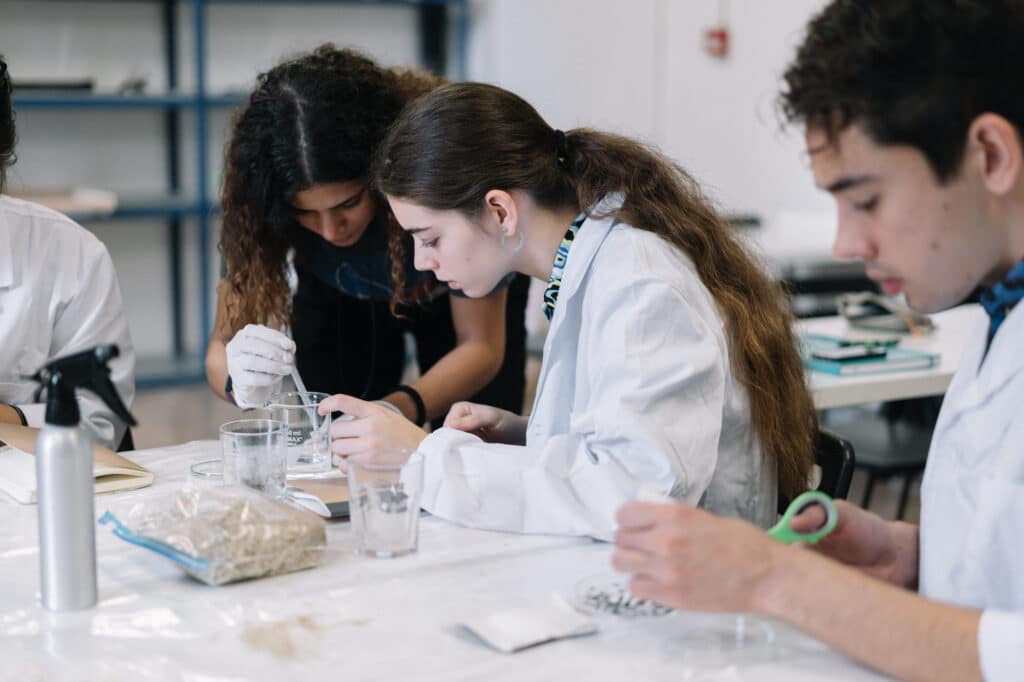
Sense Making
Collective Awareness Platforms and Open Tools for Environmental Monitoring.
From air pollution sensors to cablebots in vegetable gardens, our research here explores how data and sensing technologies help communities understand and shape the ecosystems they live in.
- González, Ó., Calvo Juarez, M., & Guy, J. (2024). An inquiry into Fab Labs as enablers for environmental protection initiatives. Fab 24 “Fabricating Equity” Research Papers (Fab24), Puebla, Mexico. https://doi.org/10.5281/zenodo.13221337
- Muñoz-Unceta, P., & Mashhoodi, B. (2022). Mobility, electricity, and parking data for EV infrastructure in the Amsterdam Metropolitan Area. Data in Brief, 42, 108270. https://doi.org/10.1016/j.dib.2022.108270
- Maccani, G., Errandonea, L., Righi, V., Camprodon, G., & Galli, J. (2021). VenicAIRE. Quaderns d’arquitectura i urbanisme, (Biennale), 74–81. https://raco.cat/index.php/QuadernsArquitecturaUrbanisme/article/view/392968
- Mahajan, S., Kumar, P., Camprodon, G., et al. (2020). A citizen science approach for enhancing public understanding of air pollution. Sustainable Cities and Society, 52, 101800. https://www.sciencedirect.com/science/article/abs/pii/S2210670719317020
- Kuula, J., Mäkelä, T., Aurela, M., Teinilä, K., Varjonen, S., González, Ó., & Timonen, H. (2020). Laboratory evaluation of particle-size selectivity of optical low-cost particulate matter sensors. Atmospheric Measurement Techniques, 13(5), 2413–2423. https://amt.copernicus.org/articles/13/2413/2020/
- Sollazzo, A., Colliaux, D., Garivani, S., Minchin, J., Garlanda, L., & Hanappe, P. (2020). Automated vegetable growth analysis from outdoor images acquired with a cablebot. In IEEE International Conference on Computer Vision Workshops. https://www.plant-phenotyping.org/lw_resource/datapool/systemfiles/elements/files/cb52dc44-eb90-11ea-908c-dead53a91d31/current/document/W0008.pdf
- Camprodon, G., González, Ó., Barberán, V., Pérez, M., Smári, V., de Heras, M. Á., & Bizzotto, A. (2019). Smart Citizen Kit and Station: An open environmental monitoring system for citizen participation and scientific experimentation. HardwareX, 6, e00070. https://doi.org/10.1016/j.ohx.2019.e00070
- Woods, M., Balestrini, M., Bejtullahu, S., Bocconi, S., Boerwinkel, G., Boonstra, M., Camprodon, G., Diez, T., … & Seiz, G. (2018). Citizen sensing: a toolkit. https://eprints.whiterose.ac.uk/148521/
- Balestrini, M., Seiz, G., Peña, L. L., & Camprodon, G. (2017). Onboarding communities to the IoT. In Internet Science: 4th International Conference, INSCI 2017, Thessaloniki, Greece, November 22-24, 2017, Proceedings 4 (pp. 19-27). Springer International Publishing. https://link.springer.com/chapter/10.1007/978-3-319-70284-1_2
- Gutiérrez, V., Theodoridis, E., Mylonas, G., Shi, F., Adeel, U., Diez, L., Camprodon, G., … & Muñoz, L. (2016). Co-creating the cities of the future. Sensors, 16(11). https://doi.org/10.3390/s16111971
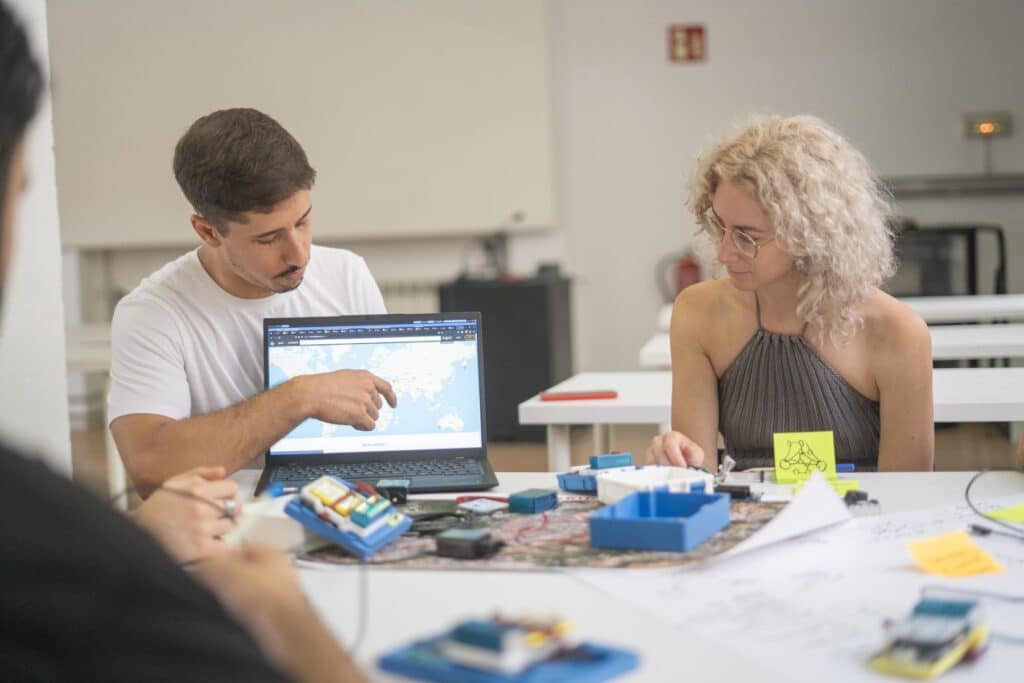
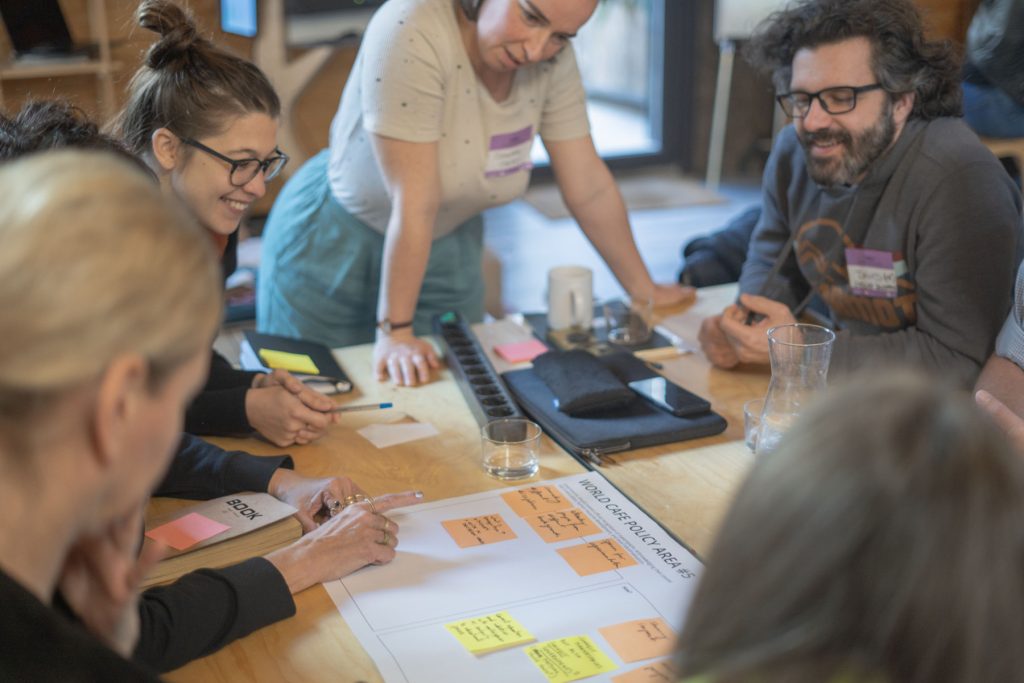
Distributed Design
Decentralized Manufacturing Models and Collaborative Design Methods.
Distributed Design lives at the intersection of digital fabrication, decentralised collaboration, and open-source practices. These works capture a growing design culture that values diversity, local resilience, and global connectivity.
- Coskun, A., Hofgärtner, R., Metta, J., Schmidt, A., Tsolakis, A. (2025) Circular Makerspaces as Alternative Employment Platforms for Circular Jobs. Circ.Econ.Sust. 5, 193–207. https://doi.org/10.1007/s43615-024-00413-2
- Panneels, I., Lechelt, S., Schmidt, A., & Coşkun, A. (2024). Data-driven innovation for sustainable practice in the creative economy. https://doi.org/10.4324/9781003365891-11
- Menichinelli, M., Velis, E., Rocha, A., & Schmidt, A. (2021). Collaborative ontology design for Open Hardware and Open Design. In Cumulus Conference Proceedings Roma 2021, Vol. 2, 1535–1550. https://researchrepository.rmit.edu.au/esploro/outputs/9922026566301341
- Real, M., Pistofidou, A., & Juarez-Calvo, M. (2022). FabLab Barcelona—Co-design With Food Surplus: Better Redistributing, Upcycling and Composting. In Co-creation for Responsible Research and Innovation: Experimenting with Design Methods and Tools, 37–46. https://link.springer.com/chapter/10.1007/978-3-030-78733-2_4
- Real, M., & Schmittinger, F. (2022). A Framework for Experimenting Co-creation in Real-Life Contexts. In Co-creation for Responsible Research and Innovation: Experimenting with Design Methods and Tools, 11–24. https://link.springer.com/chapter/10.1007/978-3-030-78733-2_2
- Cabrera, A., Pistofidou, A., Real, M., Sykes, S., Czeschik, A., & Marsh, J. (2021). Innovation Ecosystem for women makers through textiles labs and the shemakes. eu approach. In Proceedings of the Fab 16 Research Papers Stream (pp. 221-239). https://doi.org/10.5281/zenodo.5169851
- Diez, T., Tomico, O., & Quintero, M. (2020). Exploring Weak Signals to Design and Prototype for Emergent Futures. Temes de Disseny, (36), 70–89. https://www.raco.cat/index.php/Temes/article/view/373819
- Real, M., Lizarralde, I., & Tyl, B. (2020). Exploring Local Business Model Development for Regional Circular Textile Transition in France. Fashion Practice, 12(1), 6–33. https://www.tandfonline.com/doi/abs/10.1080/17569370.2020.1716546
- Minchin, J. (2020). ROMI: Robotics for Microfarming. Open Access Government. https://www.openaccessgovernment.org/romi-robotics-for-microfarming/80533/
- Armstrong, K. (2020). Distributed Design: A Platform Approach Towards More Inclusive, Plural Futures for Design. Making Futures Journal, Vol VI. https://makingfutures.pca.ac.uk/journal/kate-armstrong
- Menichinelli, M., & Schmidt, A. G. S. (2020). First exploratory geographical and social maps of the maker movement. European Journal of Creative Practices in Cities and Landscapes, 2(2), 35–62. https://cpcl.unibo.it/article/view/9640
- Real, M., & Calvo, M. (2019). Boosting co-creation practices in makespaces to support the design of more empowering and circular food systems at a neighbourhood scale. In ERSCP 2019 (Vol. 1, pp. 831). https://hal.archives-ouvertes.fr/hal-02387713/
- Diez, T. (2019). Understanding what it Means to Design for Emergent Futures. Making Futures Journal, 6(6). Retrieved from https://makingfutures-journal.org.uk/index.php/mfj/article/view/82
- Menichinelli, M. & Schmidt, A. & Ferronato, P. (2019). Mapping strategies for distributed, social and collaborative design systems of makers, designers and social entrepreneurs. Conference Proceedings of the Academy for Design Innovation Management. 2. 10.33114/adim.2019.01.378. https://www.researchgate.net/publication/336530688_Mapping_strategies_for_distributed_social_and_collaborative_design_systems_of_makers_designers_and_social_entrepreneurs
- Menichinelli, M., & Gerson Saltiel Schmidt, A. (2019). Measuring the Social Impact of Maker Initiatives. Frameworks and Guidelines for Scaling the Assessment on Digital Platforms. In Sharing Society. The Impact of Collaborative Collective Actions in the Transformation of Contemporary Societies. (pp. 526–537). Universidad del País Vasco/ Euskal Herriko Unibertsitatea. https://www.researchgate.net/publication/333145234_Measuring_the_Social_Impact_of_Maker_Initiatives_Frameworks_and_Guidelines_for_Scaling_the_Assessment_on_Digital_Platforms
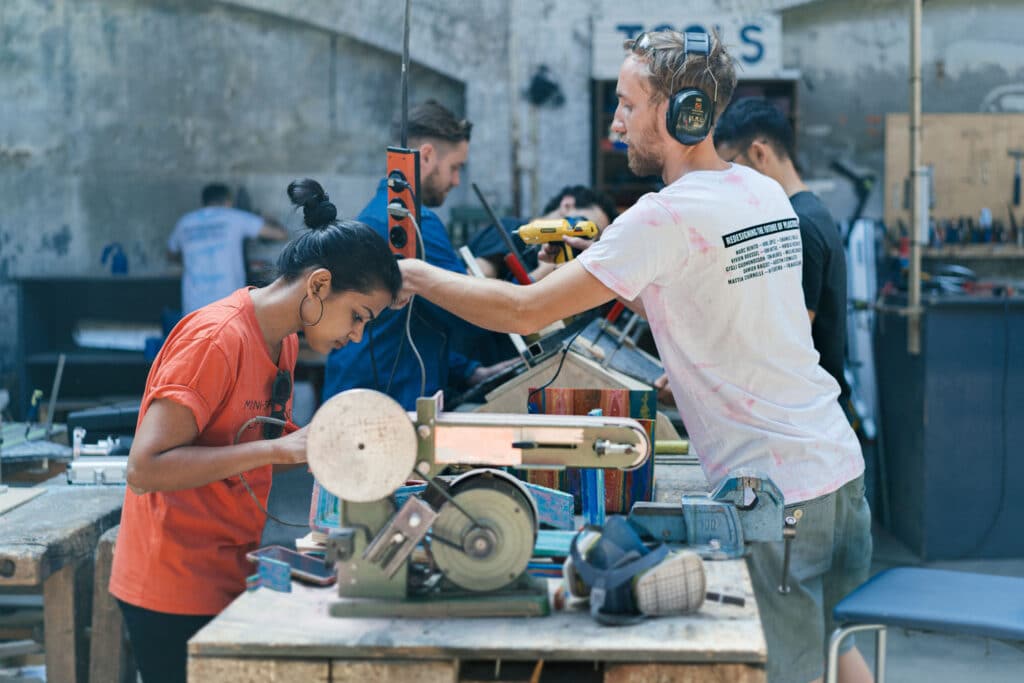
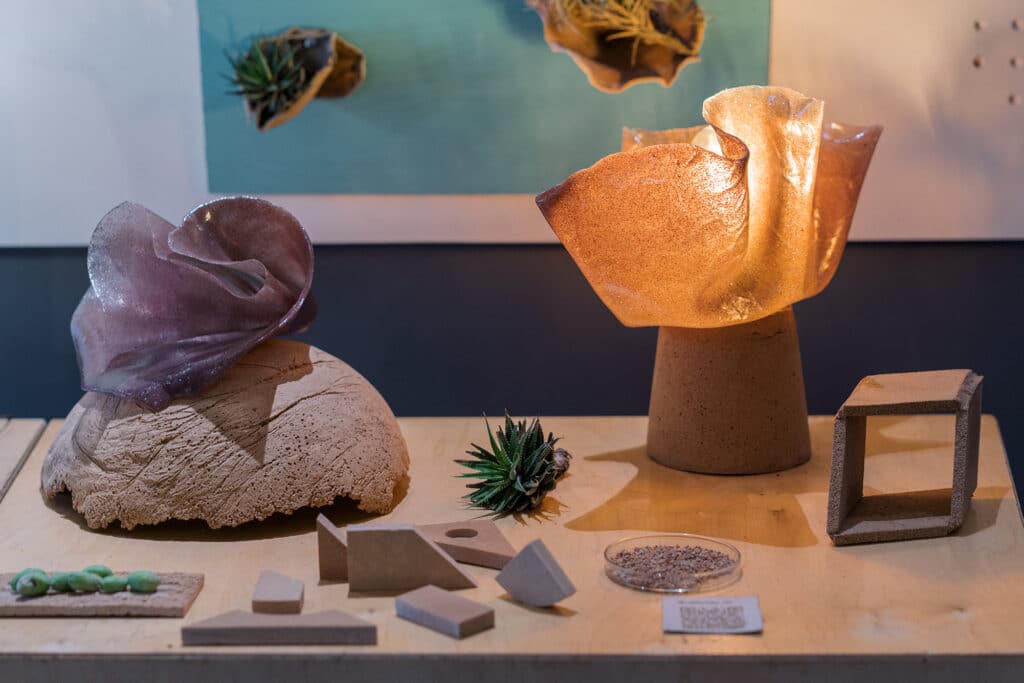
Productive Cities
Community-Driven Innovation Spaces and Open Knowledge Ecosystems.
From food waste to electric vehicles, this layer connects all our pillars. It’s about embedding fabrication, data, and collective knowledge into the urban fabric to create more liveable, regenerative, and inclusive cities.
- Calvo Juarez, M., Real, M., & Dal Cin, G. (2024). From industrial neighbourhoods to regenerative territories: blueprinting the practices of (emerging) distributed networks of fabrication. Fab 24 “Fabricating Equity” Research Papers (Fab24), Puebla, Mexico. https://doi.org/10.5281/zenodo.13221335
- Schafer LJ, Anthouli A, Schmidt A et al. (2024). Transforming European Food Systems with multi-actor networks and Living Labs through the FoodSHIFT Approach. Open Res Europe 2024, 4:151 https://doi.org/10.12688/openreseurope.17982.2
- Schmidt, A. (2023) Food citizenship: play, imagination, and metaphors. Conference Paper https://repositorio.ufsc.br/handle/123456789/247122
- Ferro, C., Muñoz Unceta, P., Fontana Valenti, C., Jusic, I., Cingolani, F., Diez Ladera, T., & Parikh, M. (2022). Fab City Hubs: Interfaces for community building and playgrounds for new innovative urban actions. Fab 17 Research Papers Stream, 19–34. https://doi.org/10.5281/zenodo.7432052
- Furlan, C., Wandl, A., Cavalieri, C., & Muñoz-Unceta, P. (2022). Territorialising Circularity. In Amenta, L., Russo, M., & van Timmeren, A. (Eds.), Regenerative Territories. GeoJournal Library, vol. 128. Springer, Cham. https://doi.org/10.1007/978-3-030-78536-9_2
- Muñoz-Unceta, P., Lambert, S., & Pazaitis, A. (2022). A citizen-oriented and circular-fabrication approach to productive cities and local resilience. Urban Transitions Conference, Barcelona. https://www.researchgate.net/publication/365409209_How_can_citizen-oriented_local_actio
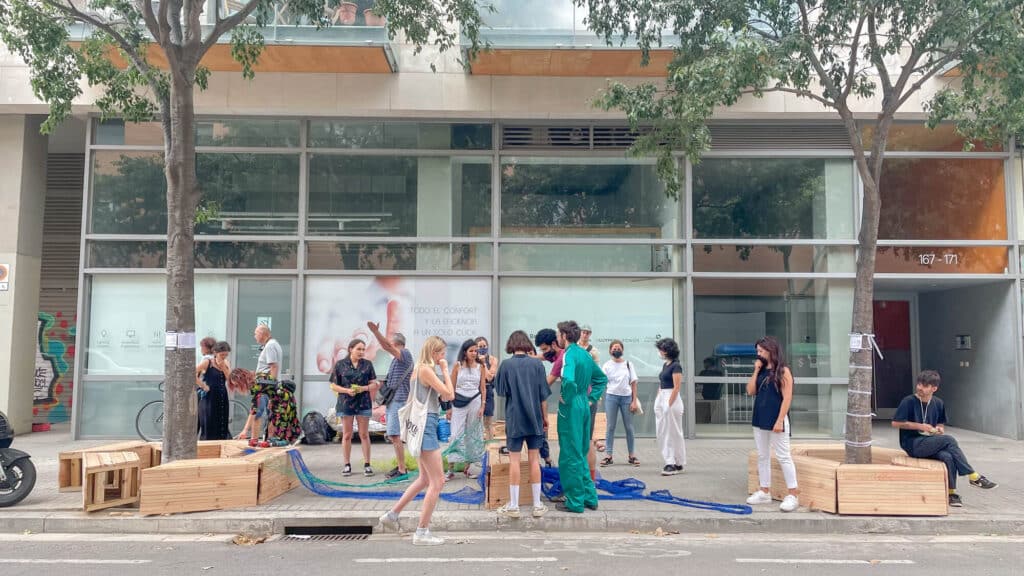
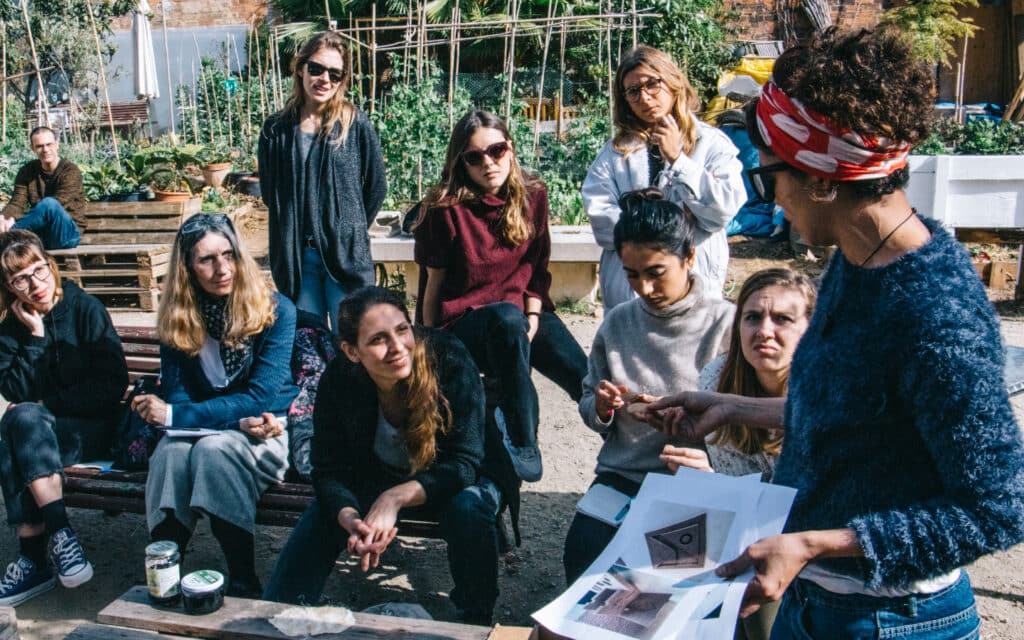
Our Research Is a Map in Progress
This curated snapshot is more than a retrospective. It is a living map of our inquiries, experiments, and collective imagination. Each article is a point of connection between disciplines, between communities, and between possible futures. Spanning from 2016 to 2025, our academic output includes more than 30 publications, many in respected journals like Hardware X, Sustainable Cities and Society, Atmospheric Measurement Techniques, and Fashion Practice. We’ve shared findings at 9 international conferences. Our most active years—2020 and 2022—highlight the acceleration of our practice-led approach to knowledge. From critical STEAM pedagogy to participatory sensing and decentralised design systems, these works trace how Fab Labs are becoming experimental research infrastructures, grounded in action and oriented toward transformation. This archive is an invitation to explore, reuse, challenge, and build upon what we’ve learned together.
Want to Read More? Check Out Our Edited Books
In addition to academic papers, Fab Lab Barcelona has edited books that expand on our research lines in practice.
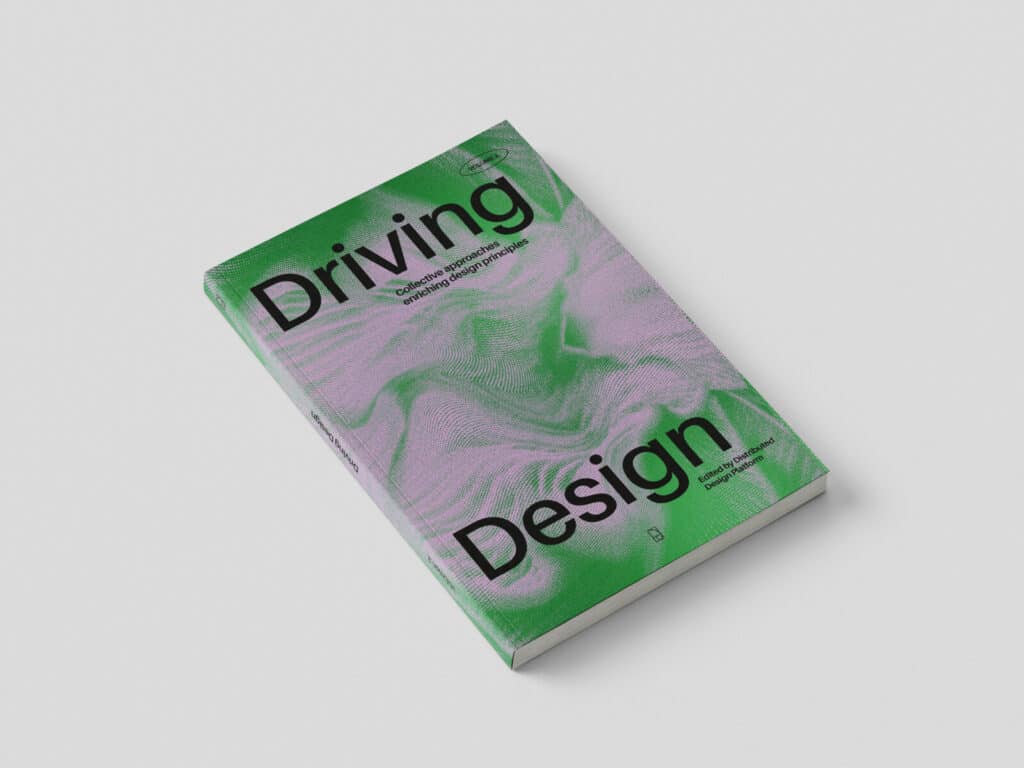
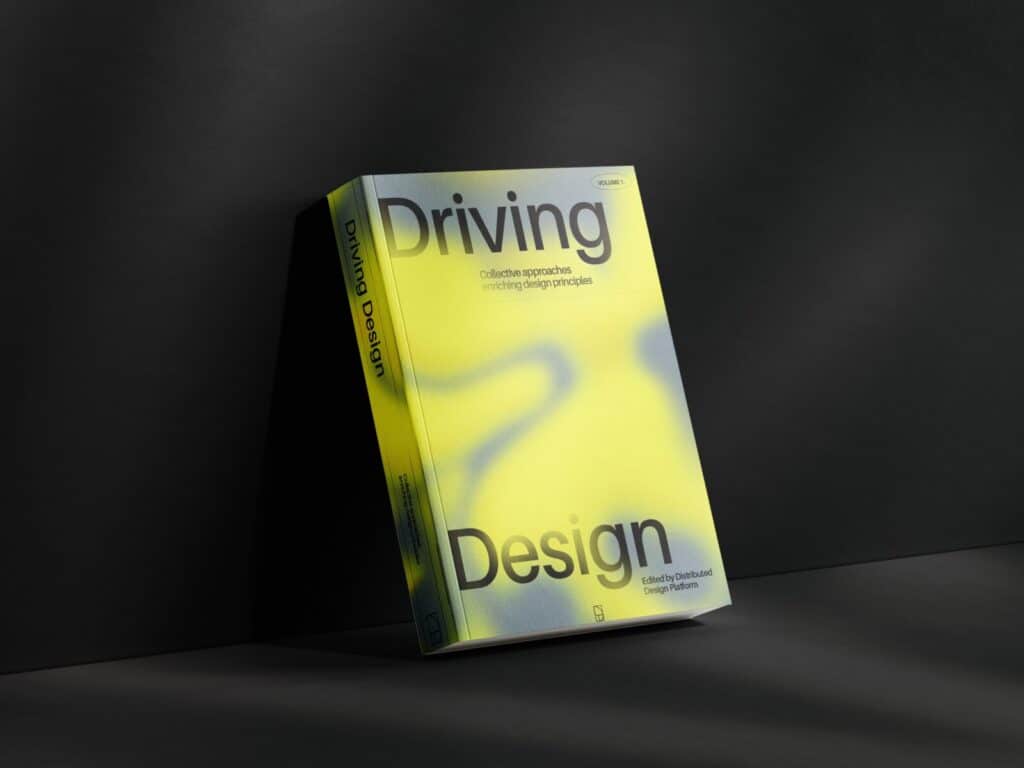
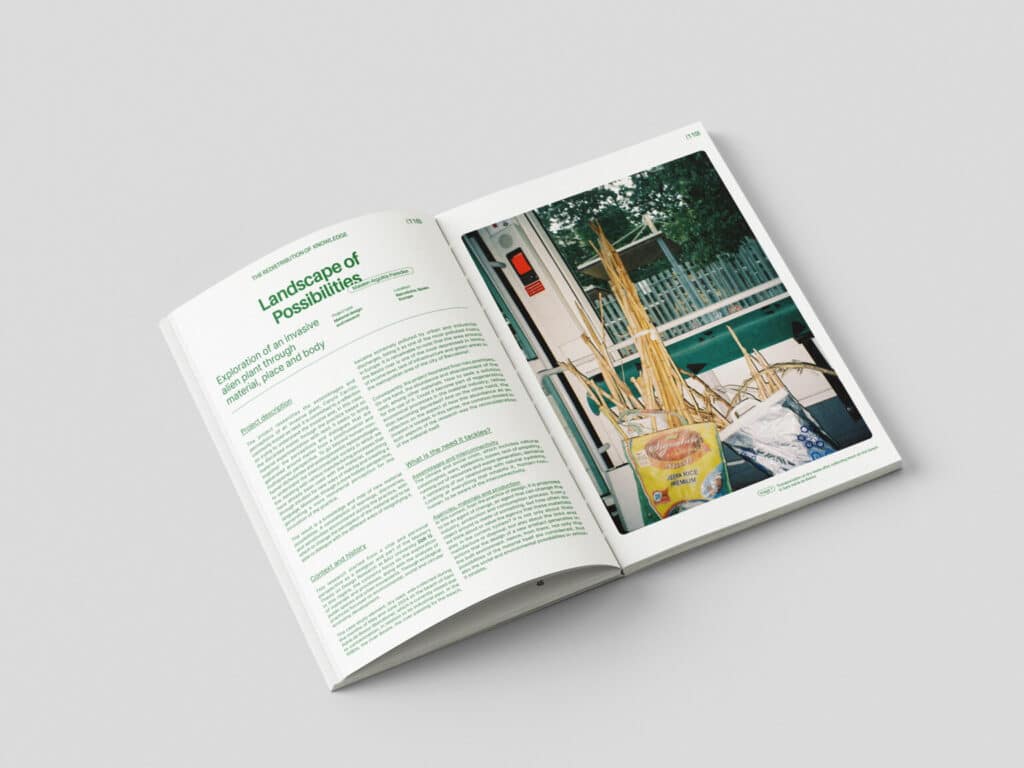
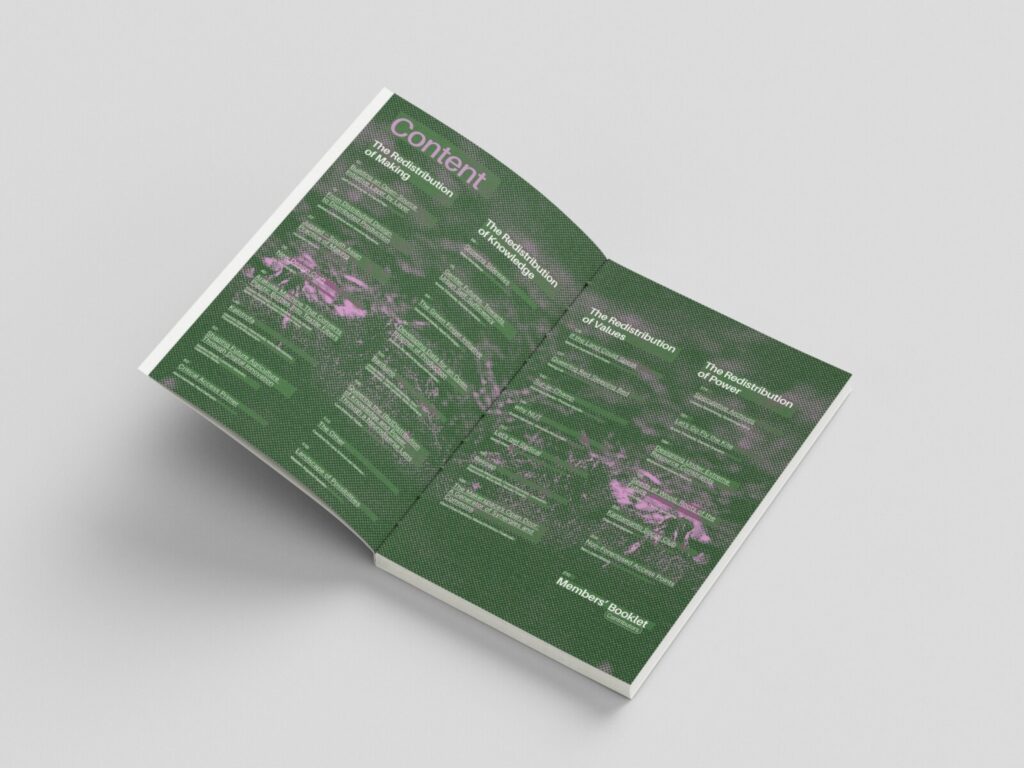
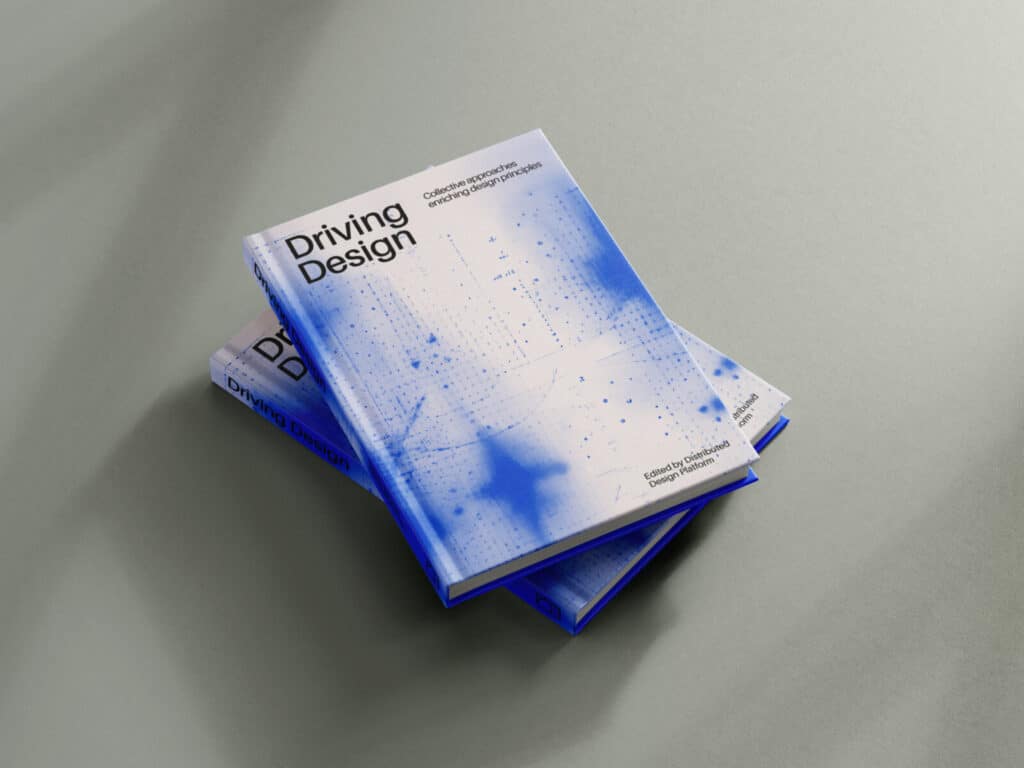
Here’s a selection of our most relevant books we edited:
- Driving Design III (2025) · Download PDF
- Driving Design II (2024) · Download PDF
- Driving Design I (2023) · Download PDF
- Regenerative Neighbourhoods in the Making (2024) · Download PDF
- Emerging Reservist Cultures (2023) · Download PDF
- Co-creation for Responsible Research and Innovation (2022) · Download PDF
- This is Distributed Design (2021) · Download PDF
- Viral Design (2020) · Download PDF
- Design Remix Share Repeat (2019) · Download PDF
- Fab City: The Mass Distribution of (Almost) Everything (2018) · Download PDF
- Understanding Collective Awareness Platforms with the Maker Movement (2018) · Download PDF
- Citizen Sensing: A Toolkit (2018) · Download PDF
Curious about becoming an antidisciplinary researcher?
Join the Master in Design for Emergent Futures.